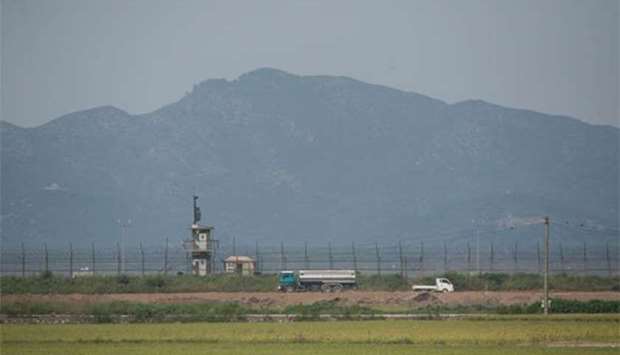South Korea has detected signs that the North is preparing another missile launch, the defence ministry said Monday, adding it could involve an intercontinental ballistic missile.
The ministry said signs that North Korea was "preparing for another ballistic missile launch have consistently been detected since Sunday's test", referring to Pyongyang's sixth nuclear test.It did not give details, or indicate when a launch might take place.
Sunday's blast had a strength of 50 kilotons, defence ministry officials told a parliamentary briefing.
Pyongyang on Sunday triggered global alarm with by far its most powerful test to date, after it claimed it had successfully tested a hydrogen bomb that could be mounted onto a long-range missile, which analysts say is a major advancement in its nuclear programme.
"The explosive power of the North's nuclear test is estimated to be 50 kilotons," a senior ministry official told lawmakers at an emergency parliamentary briefing.
That would make it five times the size of the North's previous test in September last year, and more than three times bigger than the US device that destroyed Hiroshima in 1945.
The official did not confirm whether the tested device was a hydrogen bomb but said "a variety of nuclear material" appeared to have been used.
The North -- which in July carried out two intercontinental ballistic missile (ICBM) launches that apparently brought much of the US mainland into range -- has rapidly made progress with its weapons programme in defiance of seven sets of UN sanctions.
THAAD launchers
South Korea said it will temporarily deploy four remaining launchers for a US THAAD missile defence system after the completion of an environmental assessment by the government.Some construction would be carried out to deploy the four launchers at the site in Seongju, south of Seoul, the defence ministry said in a statement.
There are currently two launchers at the location, a former golf course. The ministry did not specify when the launchers would be moved onto the site.
The deployment decision was made by President Moon Jae-in in the face of growing tension sparked by North Korea, which conducted its sixth and most powerful nuclear test on Sunday.
China strongly objects to the Terminal High Altitude Area Defense system, saying its powerful radar can probe deep into its territory, undermining its security.

